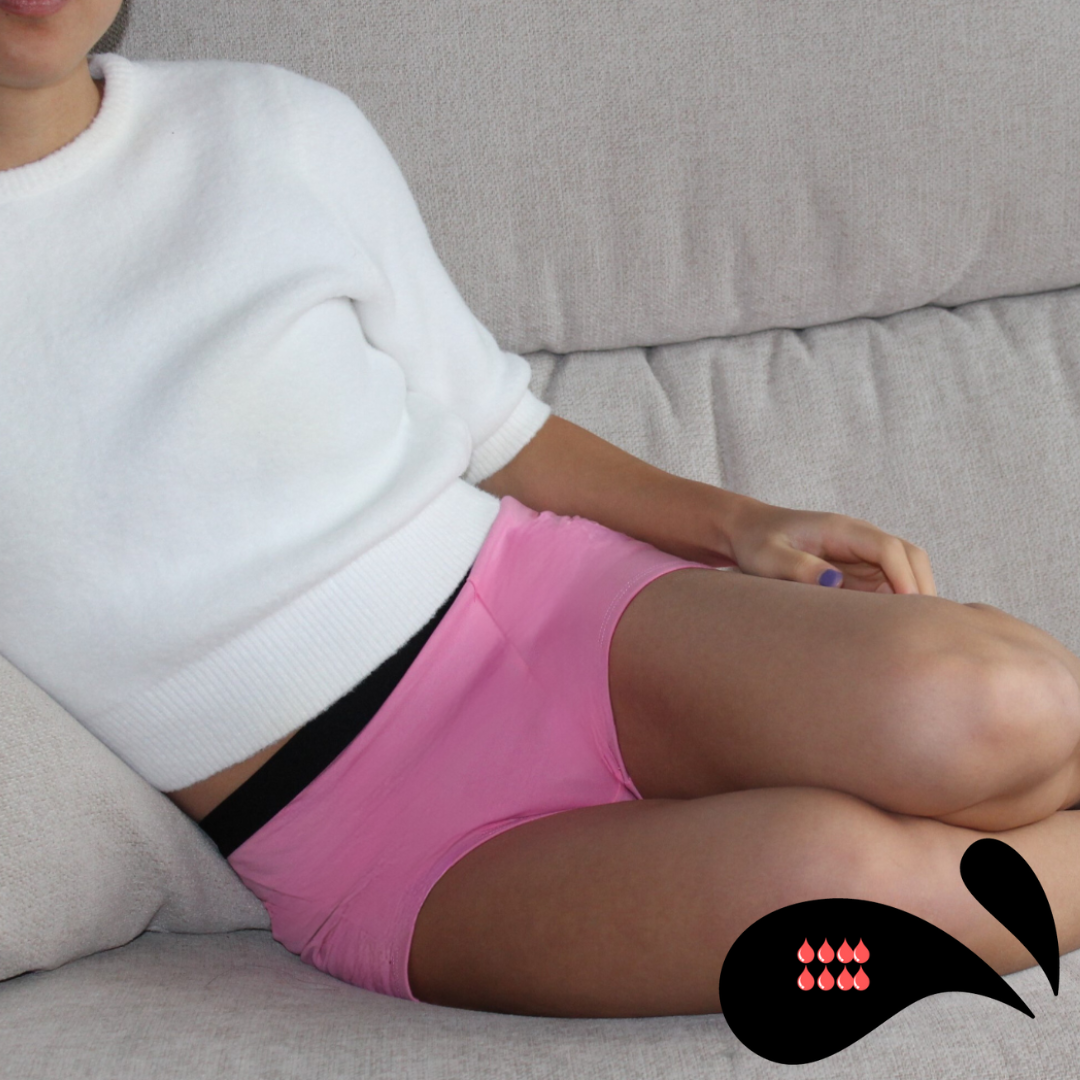Perimenopause Bleeding
I really want to put down some thoughts around the whole area of peri-menopausal bleeding, aka the dying kicks of the ovaries and uterus while having a laugh!
Perimenopause marks that time coming up to the menopause, it is individual and usually starts in the 40's. The associated symptoms are usually night sweats, periods may become irregular, low mood and the one that I think is a real pain in the proverbial, the heavy bleeding. Not every one will get that but it can be really hard to manage. I have many in our community of women, reach out, and they really are at their wits end. It is affecting their daily life, their relationships and some have welcomed lockdown as they can't go out anywhere in comfort.
In terms of periods, I really did get away rather light, literally, first 2 days predictably a little heavier, next 2 moderate to light and last day just really light, text book 'normal'. But lately now in my late 40's, I can really sympathise with the heavy bleeding. Day 1 is the usual but day 2, OMG, poor Nixxworld are really getting tested! That was yesterday and it was like what the hell? Is my uterus having a laugh? The bizarre thing is though, I don't fit into perimenopause category as yet as it is usually defined as beginning with irregular periods and then ending a year after the last menstrual period and I am still 28 days on the button but I am definitely making the cut, age wise!
The medical reason for heavy bleeding in the perimenopause stage of our lives, is because our ovarian function is declining, and ovulation may not occur at all as we age, however we continue to release oestrogen and we have less progesterone to regulate the growth of the lining of our uterus and because of that, it may become thicker before it is shed during your period. Also as we can get older we can develop fibroids which are benign tumors of the uterine wall or the heavy bleeding can be caused by polyps. We can also develop endometriosis. So lots can be going on in there that can cause heavy bleeding.
So many suffer in silence and don't seek help. It is important to make a visit to your GP who may refer you on to a gynecologist. Excessive bleeding that saturates a pad per hour for 24 hours or bleeding that lasts longer than 7 days needs to be assessed by your GP. Very often this can be treated and you don't have to continue on suffering with this. You can become anemic, so please don't ignore it, and that leads on to a host of other issues for you that we can discuss at another point.
Many of you know that when you contact me and describe the bleeding, that I have urged you to go to your GP, there are lots of interventions for you that can control this level of bleeding and give you back your life and by all means, thereafter, reach into your underwear drawer for your Nickeze underwear , but when your bleeding is controlled and you aren't bleeding yourself dry every month. If you are finding it difficult, no matter where you are, ring me, text me, email me and I will support you and encourage you to get the help you need to see your doctor. I know many of us will keep putting it off but if something like this takes away your quality of life, then it is most definitely time to have an assessment and consider your options.
So what can be done?
How your heavy perimenopausal bleeding is treated will depend on the diagnosis and assessment by your GP/Gynecologist. The options range from polyp removal, hormonal treatments, insertion of an Intrauterine device (IUD), and in difficult cases, where none of the above work, a hysterectomy may be recommended which is removal of the uterus.
I can put up with my day 2’s of my period , they are very manageable, might have a bit more washing to do on day 2, but hey, on a side note, it is better than throwing pads into landfill, as our Period Poverty Charity say, and I love this....'Your period should not cost the earth'. Don't you love that line!
So don’t put it on the long finger any longer. It usually won’t get better by itself as our hormones are diminishing as we get closer to menopause and likely our perimenopausal periods are going to be heavier.
Ellie ❤️
Nickeze





